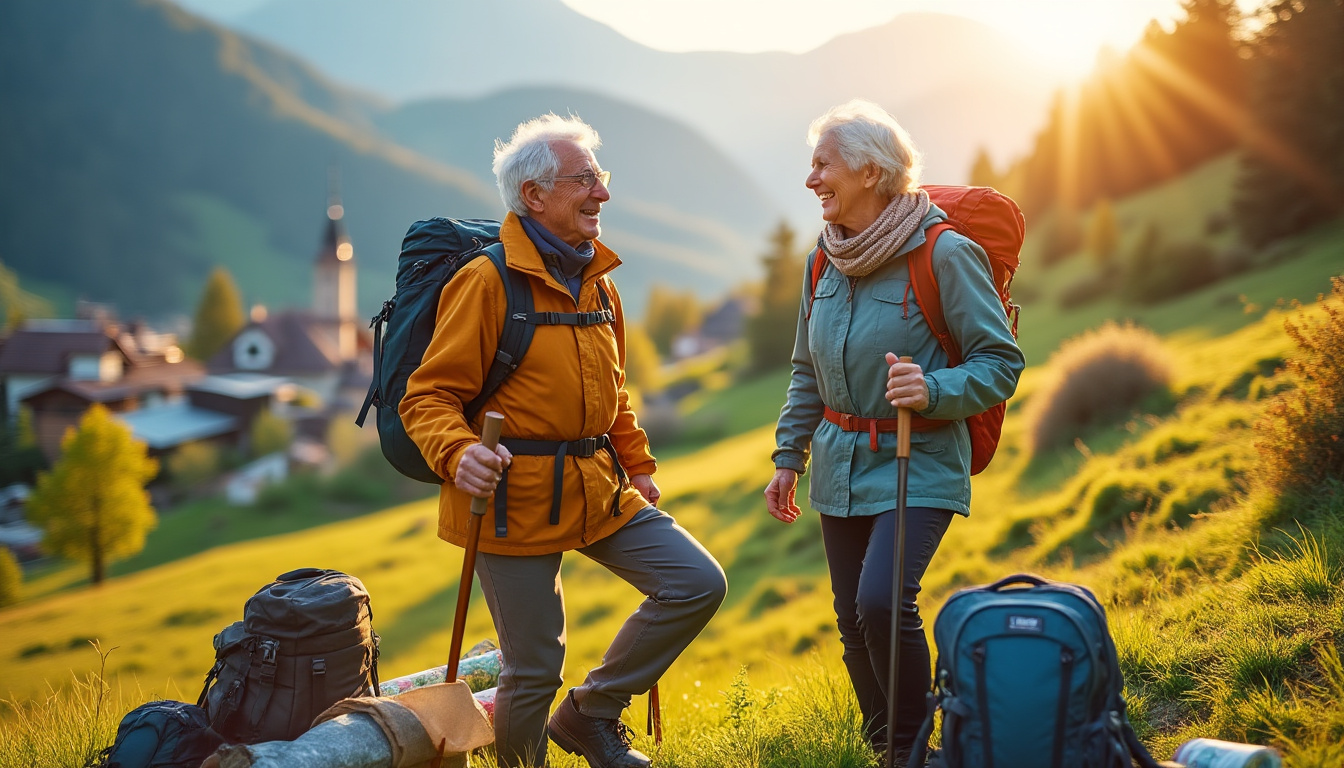Travel opportunities for seniors have expanded vastly as more retirees embrace the world with enthusiasm and confidence. The surge in senior travelers—highlighted by a 2021 National Poll on Healthy Aging showing an increasing number of individuals aged 50 to 80 planning extended trips—reflects a growing appreciation for travel’s benefits on mental and physical well-being. Proper preparation tailored to their unique needs, from health assessments to accessible accommodations, ensures these adventures remain safe and fulfilling. Today’s senior explorers rely on expert services such as AARP Travel, Travel Guard, and specialized providers like Globus Journeys or Saga Holidays to navigate their journeys with confidence, making 2025 an excellent year to discover new destinations and create lasting memories.
Health and Safety Considerations for Senior Travelers
Older travelers often confront health-related challenges that demand attention well before departure. A comprehensive medical check-up can clarify any restrictions or precautions that may impact journey plans.
- Medication Management: Verifying prescriptions for the trip’s duration and understanding how time zone changes affect dosage timing are crucial steps.
- Immunity and Infection Prevention: Especially for those with weakened immune systems, precautions like mask-wearing and frequent hand sanitizing become integral during travel.
- Blood Clot Risks: Encouraging movement and periodic walking aboard flights reduces the risk of deep vein thrombosis.
Consultations with healthcare providers can also address legal requirements regarding medication transport and suggest additional vaccinations or preventive measures based on the destination’s health risks. Reliable sources such as the India travel tips guide offer up-to-date advice for navigating medical concerns abroad.
| Health Checklist Item | Considerations | Benefits |
|---|---|---|
| Pre-trip medical evaluation | Detect chronic health issues, get vaccination updates | Minimizes unexpected health complications |
| Medication supply verification | Ensure enough doses, understand legal travel requirements | Avoids treatment disruption during travel |
| Preventive hygiene measures | Hand sanitizer, mask usage, disinfecting surfaces | Reduces infection risks in crowded or international settings |
Accessibility and Accommodation Tips for Senior Explorers
Mobility considerations no longer limit travel options for seniors, but they necessitate thorough research to ensure comfort and independence.
- Accommodations: Opt for hotels or rentals that provide elevator access, wheelchair-friendly spaces, and ground-floor rooms if needed. Engaging directly with the accommodation often clears any doubts missed by online reviews.
- Transportation Choices: Evaluate the availability and suitability of local transit systems, accessible taxis, or rental options aligning with physical capabilities.
- Travel Club Resources: Joining groups like the Seniors Travel Club or consulting a Senior Travel Expert can provide insider tips on destinations well-suited for older adults.
For anyone uncertain about accessibility features, reaching out to services such as Grand European Travel or Silver Wings Travel can enhance planning confidence and ensure a supportive environment throughout the trip.
| Accommodation Feature | Why It Matters | Recommended Providers |
|---|---|---|
| Elevator availability | Facilitates mobility between floors with minimal strain | Saga Holidays, ElderTreks |
| Wheelchair accessibility | Essential for travelers with mobility aids | Silver Wings Travel, Globe European Travel |
| Proximity to transportation | Reduces travel fatigue and inconvenience | Road Scholar, AARP Travel |
Balancing Activity and Rest for a Rewarding Senior Travel Experience
While enthusiasm often inspires seniors to maximize their itinerary, pacing is key to sustaining energy and enjoyment.
- Schedule Wisely: Avoid cramming every moment with activities. Include rest periods and downtime to recover physically and mentally.
- Flexibility: Allow room for spontaneous adjustments according to how the body feels during the trip.
- Hydration and Nutrition: Older adults should consistently drink water to counteract reduced thirst sensation and prevent dehydration, particularly in air travel conditions.
Find detailed strategies to optimize trip pacing in resources like the smooth travels guide and advice on minimal packing from a minimalist approach that aids stress reduction.
| Pacing Element | Implementation | Benefits |
|---|---|---|
| Daily rest periods | Incorporate breaks and leisure time | Prevents fatigue and preserves enthusiasm |
| Flexible itineraries | Allow schedule changes based on health status | Increases overall trip satisfaction |
| Proper hydration | Carry water and drink regularly | Maintains physical well-being and vitality |
Essential Pre-Travel Preparation and Research
Understanding the destination’s unique challenges, including health risks and safety measures, is vital for senior travelers.
- Consult Relevant Travel Advisories: Review government-issued guidelines to identify current safety warnings or travel restrictions.
- Assess Required Vaccinations: Confirm with healthcare practitioners the specific immunizations needed for the destination.
- Understand Local Health and Security Situations: Research disease prevalence, emergency medical facilities, and secure accommodations.
Before embarking on international trips, seniors can benefit significantly from insights shared by platforms such as ElderTreks and Road Scholar, which specialize in elder-focused travel planning. Reliable background checks can be found on related travel advisories and on varied online resources.
| Preparation Step | Purpose | Resources |
|---|---|---|
| Travel advisory review | Ensures awareness of destination risks | U.S. Department of State, AARP Travel |
| Vaccination update | Prevents exposure to endemic diseases | Healthcare provider, Travel Guard |
| Local emergency preparedness | Enables quick response to medical or security issues | ElderTreks, Grand European Travel |
FAQ: Essential Insights for Senior Adventurers
- Q: How can seniors minimize travel-related health risks?
A: By obtaining a thorough pre-trip medical evaluation, managing medications carefully, and adopting preventive practices like regular hand hygiene and mask usage in riskier environments. - Q: What should be prioritized when booking accommodations?
A: Accessibility is key, including features like elevators, wheelchair access, and close proximity to public transport. Directly contacting properties ensures these needs are met. - Q: How can seniors balance an active itinerary with adequate rest?
A: Scheduling intentional downtime within daily plans and remaining flexible for adjustments allows travelers to enjoy activities without exhaustion. - Q: Are special travel advisories available for older adults?
A: Yes, seniors should monitor updates from the U.S. Department of State and specialized organizations such as AARP Travel, which offer tailored advice and alerts. - Q: What resources help seniors find suitable travel programs?
A: Consulting companies like Globus Journeys, Road Scholar, and ElderTreks can connect seniors with tailored adventures that value comfort and accessibility.


